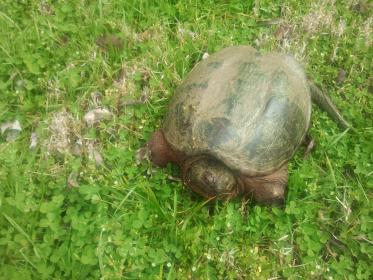Folks, free range chickens are like offering a free buffet to any and all out there.
Chickens are domesticated birds.
We bred and raise them to be what we use.
That doesn’t involve having a survival instinct to live in the wild.
That means it is OUR responsibility to care for them properly.
That means, keeping them safe, even if their ultimate purpose is to be eaten by us.
I think humans in general do better at caring for those we take as our responsibility, under animal husbandry principles, then nature itself does.
Nature doesn’t care, is survival of the fittest, at any cost to the individual that doesn’t measure up.
Part of that is to keep our chickens as safe as we can make them, even if we think they may be happier out there, taking their chances with wildlife, other domestic pets and maybe ending up as road kill, as free range chickens tend to do when loose, not being car smart.
By the way, the same applies to other animals we choose to live with and care for.
I don’t think we have black vultures around here, maybe because we have plenty of the turkey vultures around.
They fly on the mornings and mostly in the evening thermals raising from our canyons and are majestic birds, even if close up they look kind of bedraggled and yes, like vultures.
Here are some in this Woody Crumbo native artist painting:
https://www.artranked.com/topic/Woody+Crumbo#&gid=1&pid=29


